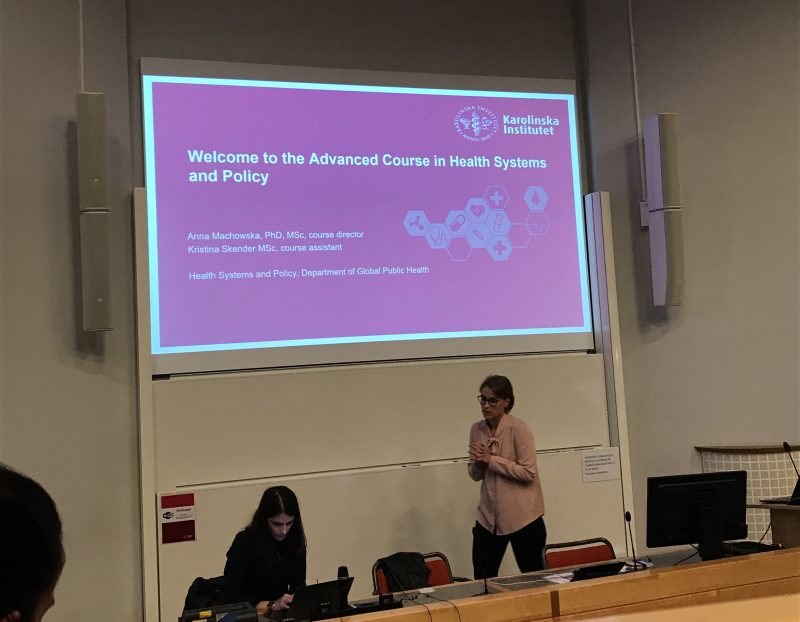
Advanced Health Policy and Systems: a course review
Hej folks! Our third semester in the Health Economics, Policy and Management (HEPM) programme is becoming more challenging each week, requiring a lot of work from students. The second course of the semester is the Advanced course in Health Policy and Systems, which has been one of the most demanding courses we have had so far in the programme.
Course structure and content:
This course used an hybrid system due to the COVID-19 pandemic. We had lectures, group discussions and non-graded seminars over zoom, while evaluations were carried out on campus. The teaching staff designed the course in order to carry out different types of activities on one week, which helped us maintaining a high-demand pace. In my opinion, this has been the most time-demanding course we have had so far. Luckily, the content covered was very interesting and relevant for the future career of a big number of students.
The course covered the following topics:
- Medicines in health systems
- Antibiotic resistance
- Power and policy
- Systems thinking (continued from the basic course)
- Public Private Partnerships (PPP)
- Health systems resilience
- Health systems preparedness, readiness and response to shocks
- Evidence-informed policy
- Health policy implementation
- Health policy in the European Union
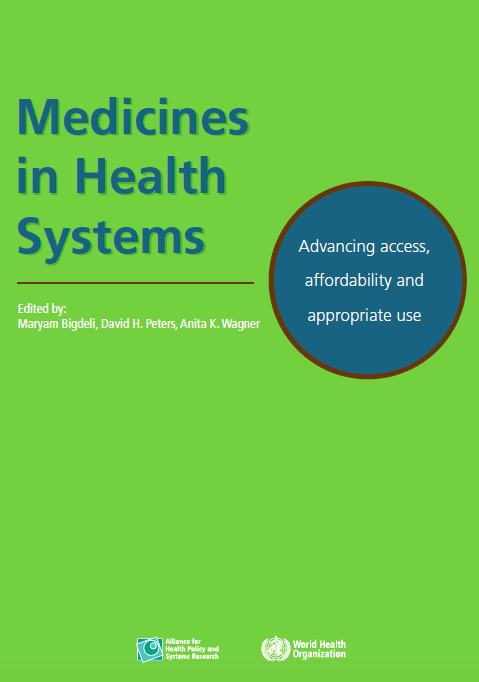
We used many WHO’s documents and frameworks during the course
Antibiotic resistance was the main protagonist of the course. The main reasons behind are that its a major global public health threat that requires comprehensive policies and also that our course director is an expert in the topic. Another very strong point in the course was PPPs and their role in policy making.
At the end of the course, we had the opportunity to host a lecture with a representative of the Public Health Agency of Sweden, which allowed us to ask questions and exchange opinions on the Swedish policy response to the COVID-19 pandemic. We were also accompanied by the Deputy Europe director of ReAct (“one of the first international independent networks to articulate the complex nature of antibiotic resistance and its drivers”)
This course is one of the few that is organized by teachers not affiliated to the LIME (Learning, Informatics, Management and Ethics) department, but to the Global Public Health department instead. The course leader was Anna Machowska, PhD, who is a experienced researcher specializing on Antibiotic Resistance.
Schedule:
The course had a duration of 4 weeks. As I mentioned earlier, this course has been the most time-demanding one since we started the programme. We had activities both in the mornings and afternoons, 5 days a week most of the time. We also had time allocated specifically for reading and preparation for seminars, which I considered to be necessary.
Special Activities:
PPP seminar: The course staff arranged a role-playing activity with the purpose of simulating the policy making process oriented towards establishing PPPs. Each of us represented a different stakeholder and their interests. The exercise was not only very fun but also a great way of illustrating the challenges that arise in the real world when different actors get together for policy purposes.
Vaccines seminar: Considering the pandemic that the world is facing, we participated in a seminar about the creation and implementation of vaccination campaigns. This was one of my favorite activities since the world’s actual context made it very didactic and engaging.
Health policy in Europe: We had the opportunity to receive a lecture from one of the top officials of the European Center for Disease Control and Prevention (ECDC), which is also located in Stockholm (actually close to campus Solna). This was a great experience since we were able to ask questions directly to a highly ranked EU official who’s work is concentrated in policy.
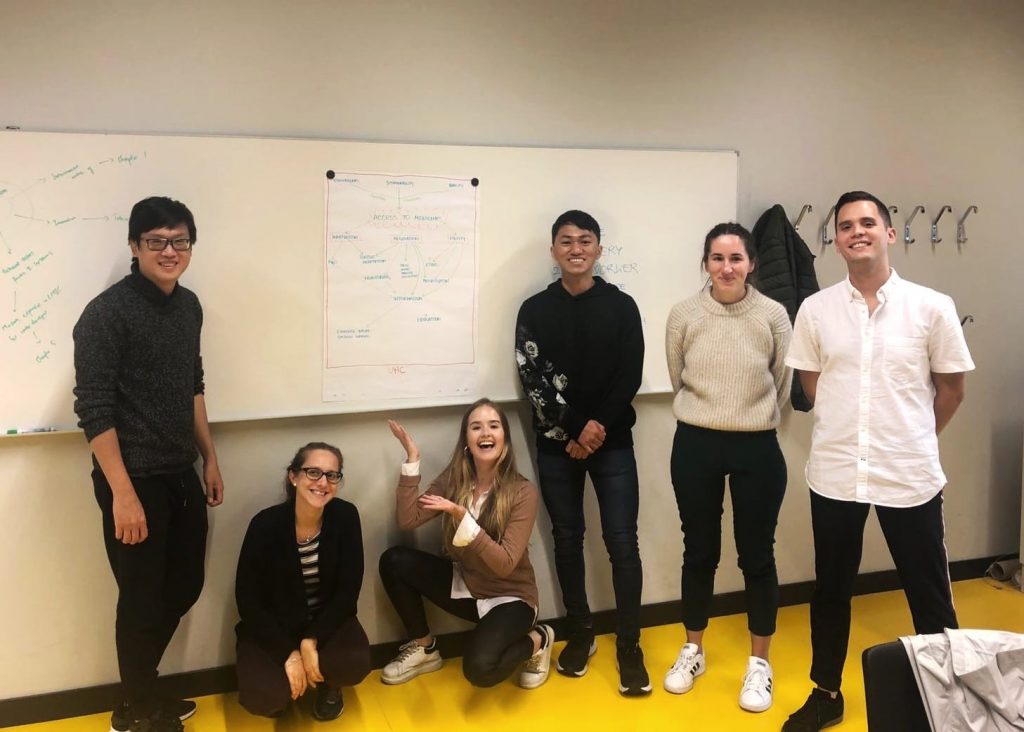
PPP seminar
Evaluation:
As in any other course, we were graded both individually and in group assignments.
- Group evaluation: Each group was assigned a different area comprising the complex topic of the global threat of Antibiotic Resistance. We ere tasked with developing a policy intervention tackling our assigned area, and at the end of the course we presented our proposal to the deputy director of ReAct. We were given very constructive and first-hand experience feedback, which was highly educative.
- Individual evaluation: The individual assignment consisted of a critical evaluation of Kenya’s national policy plan for fighting antimicrobial resistance. Although challenging and very stressful, this assignment helped me understand better how to apply policy frameworks to evaluate country’s policies.
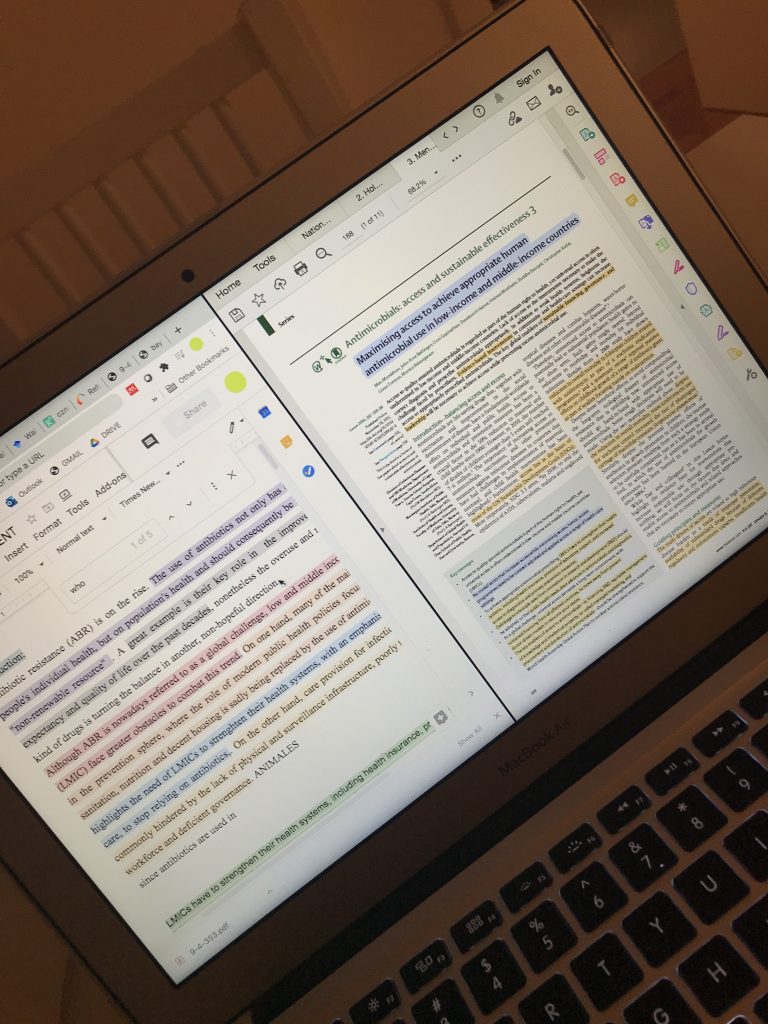
Late nights with the individual assignment
Class insights…
Inga-Lena Gruse (Germany):
What did you like about the course?
The advanced health policy was quite ambitious. I feel that within 3 ½ weeks I was reminded of the importance of health policy. I liked how urgent and current examples were used in this course which displayed the role of health policy. In the group assignment I was able to understand the process of policy making which I think is not only important for my future career, but also as a citizen who is affected by policies.
What are the key lessons that you take from this course?
Health policy is tightly linked to the other two elements of the program (economics and management). Policy is in most cases a foundation of decision making within healthcare management and health economics.
How different was it from the basic policy course?
In the basic health policy course we mostly learned about the six building blocks and the policy triangle. In the advanced course we used this knowledge and focused on the process of policy making and the steps which need and should be considered, and which challenges might occur when implementing a policy
Mandeep Grewal (United Kingdom)
What are the key lessons that you take from this course? How different was it from the basic policy course?
Going into the Master’s programme my main interest was Health policy and health systems strengthening so I was very much looking forward to the Health Systems and Policy modules.
In year 1 we learned a lot of the theoretical basis for what makes up a health system, including the WHO building blocks, the policy triangle analytical framework, as well as understanding the health policy and health systems research, particularly the importance of context. As groups we worked together to identify gaps in health policy in various countries and design and defend a policy intervention.
In year 2, during the advanced course there was again a combination of theory and implementation of theory, but as it was being revisited, I felt much more competent and confident, for example when doing health policy analyses. Using ‘real-world’ cases such as TB treatment access in India and the national antimicrobial resistance policy in Kenya made everything seem so relevant. The course was more intense this year, with a lot of reading, which has been the case for some of the other advanced modules too, but I have found revisiting the subject has reinforced and consolidated learning, making it much more useful for future careers.
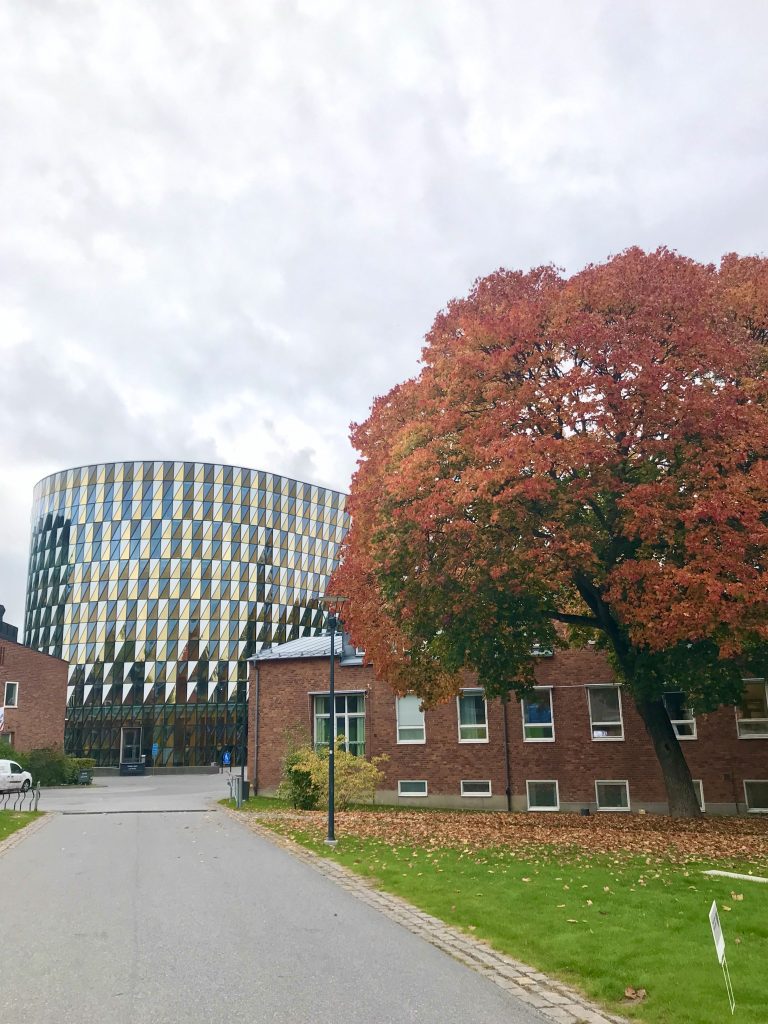
Most popular picture on campus during fall semester
Hope you enjoyed the review! Stay tuned.
Best,
Julio.
email: julio.sosa@stud.ki.se
Linkedin: https:/www.linkedin.com/in/julio-sosa-maldonado-659301175/
Instagram: @julio.sosam

0 comments